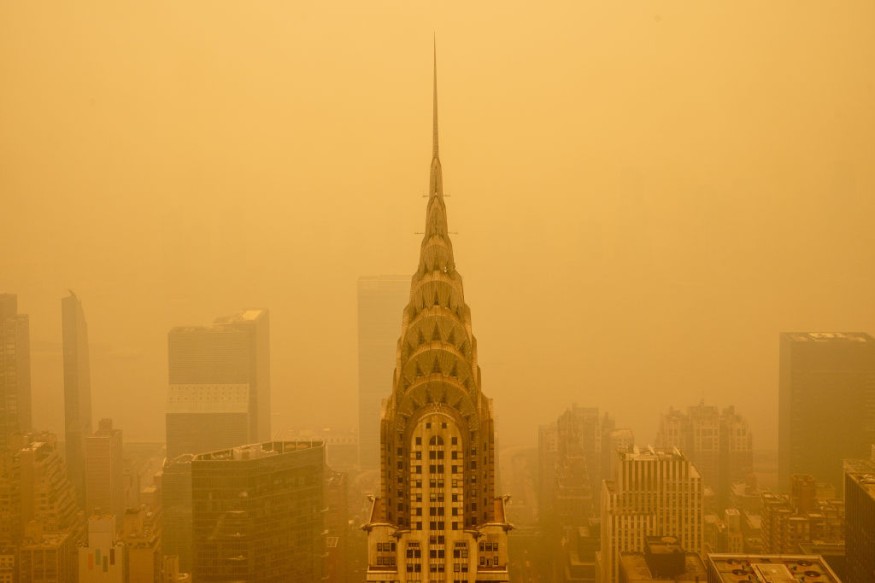
According to studies, breathing in the poor air quality caused by recent wildfires has reduced human lifespan by one hour, which is equivalent to smoking six cigarettes.
Wildfires, Poor Air Quality, and Six Cigarette Sticks
This week, smoke plumes from several Canadian wildfires covered New York City as well as the tri-state region. In order to protect themselves, health officials in New York have advised citizens to wear face masks outside.
New York City now has the worst air quality of any city on Earth.
— Colin McCarthy (@US_Stormwatch) June 7, 2023
If exposed to the current air quality in NYC for 24 hours, it would be equivalent to smoking about 6 cigarettes. pic.twitter.com/EWeEnQH9ya
On Wednesday afternoon, New York City's air quality was rated as the worst in the world as a result of a vivid orange haze that engulfed the city. According to some studies, inhaling the air in New York City might be as harmful as smoking six cigarettes each day.
According to a 2020 Stanford University research, an index rating of 20 is the equivalent of smoking one cigarette per day. As of writing, the Air Quality Index in some areas of New York is above 300 on the scale, which is categorized as "hazardous."
According to the National Institutes of Health, smoking one cigarette reduces a person's life expectancy by 11 minutes. If the smoke in New York City truly is the same as smoking six cigarettes, then individuals may have already lost an hour of their lives.
Toxicity of Smoke
According to Abbas Kanani, a Chemist Click Online Pharmacy pharmacist, inhaling smoke from any source can have harmful consequences on one's health. However, comparing the amount of smoke to the number of cigarettes smoked can be difficult owing to the differences in composition and toxicity of various sources of smoke. The length and intensity of the exposure are two additional elements that have a big impact on the possible health effects.
The flames have also covered Philadelphia, Jersey City, along with New Haven, Connecticut, with smoke.
As a University of Montana research associate professor of toxicology, Christopher Migliaccio told Newsweek that while the full effects of the Canadian wildfires are still unknown, they pose several health hazards.
According to Migliaccio, smoke ages more quickly the longer it remains in the atmosphere. There is a higher chance that chemical alterations will produce more highly reactive free radicals, which have the potential to have a negative impact on health. Experts are still evaluating and defining these concerning exposures since, as with everything in toxicology, the dosage determines the poison.
He suggested that locals reduce their exposure by utilizing a variety of tactics, such as leaving the area, using filters, and reducing outdoor activities, to lower the exposure.
Vulnerability to Smoke
People with respiratory conditions need to use extra caution.
According to Migliaccio, prolonged exposure to smoking can lead to difficulties in both cardiovascular and respiratory at-risk individuals. Exacerbation of asthma or COPD and an elevated risk of a cardiovascular incident are two examples.
The numerous gases and particles included in wildfire smoke can be harmful to human health. Short-term hazards might include an elevated risk of respiratory infections as well as irritation of the nose, eyes, lungs, and throat.
According to Migliaccio, research is still being done to ascertain the potential duration of some of these effects. The consequences of significant exposure to the coming flu season were examined in research by Landguth et al. published in the journal Environment International in 2020. Additionally, the possibility of additional effects from numerous exposures is a concern that has not yet been fully resolved, Migliaccio explained in an interview with Newsweek.
Related Article : Air Quality Alert Issued for Parts of Texas as Officials Announce Ozone Action Day
© 2025 NatureWorldNews.com All rights reserved. Do not reproduce without permission.

